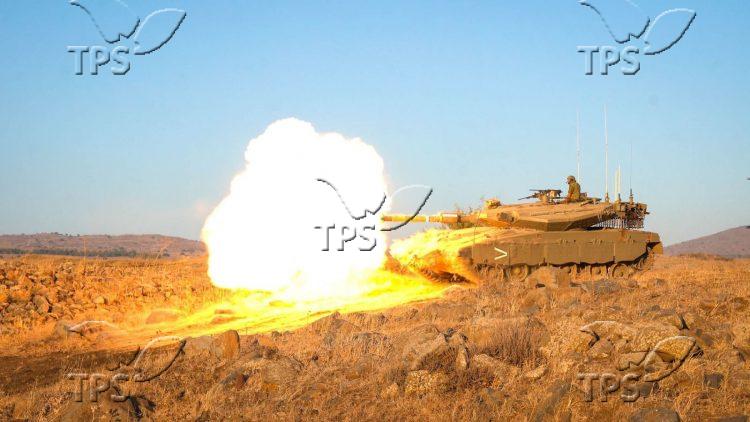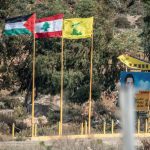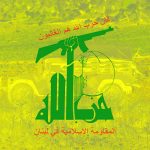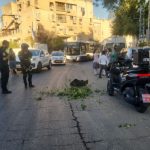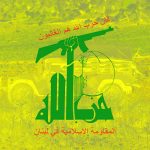Explainer: Why Southern Lebanon Is Key to the Israel-Hezbollah Conflict
Jerusalem, 5 October, 2024 (TPS-IL) -- The volatile region of southern Lebanon has long been a focal point in the ongoing Israel-Hezbollah conflict.
Its proximity to northern Israel combined with terrain that is favorable for guerrilla warfare make the region a strategic asset for Hezbollah. From southern Lebanon, Israeli cities such as Haifa, Safed and Nahariya are well within range of Hezbollah rockets, while terrorists firing smaller anti-tank rockets strike fear in smaller communities near the border.
Hezbollah maintains weapons storage sites, launchers, munitions factories, command centers and a network of tunnels throughout southern Lebanon. These are the Hezbollah assets Israel’s ground operation aims to remove while setting up a security zone.
After the Hamas attacks of October 7, 2023, the Iran-backed terror group began firing rockets and launching drones at northern Israel communities, killing 49 people. According to figures released by the government on Sept. 29, more than 68,000 residents of northern Israel are displaced from their homes. Hezbollah leaders have repeatedly said they would continue the attacks to prevent Israelis from returning to their homes.
To secure the return of the Israelis to their homes, officials have floated the idea of setting up a security zone in southern Lebanon.
The Litani River and Beqaa Valley
The key features of southern Lebanon are the Litani River and Beqaa Valley.
“The Litani River is a natural border,” Prof. Eyal Zisser, a vice-rector of Tel Aviv University and a senior research fellow at Moshe Dayan Center for Middle Eastern Studies told The Press Service of Israel. The Litani, 140 km long, is Lebanon’s longest river, originating in eastern Lebanon near the city of Baalbek. The river follows the Beqaa Valley south before turning west and eventually reaching the Mediterranean near the city of Tyre.
According to United Nations Security Council Resolution 1701, which ended the 2006 Second Lebanon War, Hezbollah is forbidden from operating south of the Litani.
Since the start of the ground war, the Israel Defense Forces has warned Lebanese not to drive south of the Litani River until further notice.
“There is intense fighting in southern Lebanon, in which Hezbollah operatives are using the civilian environment and you as a human shield to organize to carry out attacks,” tweeted Col. Avichay Adraee, the army’s Arabic-language spokesman, on Tuesday. “For your safety, we ask you to avoid movement in vehicles from the north to the south of the Litani River.”
The Beqaa Valley in eastern Lebanon lies between the Lebanon and Anti-Lebanon mountain ranges. About 120 kilometers in length, the valley provides Hezbollah with easy access to Syria, and is a key land route for Iranian weapons smuggling. Israeli officials have indicated that cutting off Hezbollah’s arms supply would require entering Beqaa.
The valley’s relatively flat terrain makes it an ideal area for Hezbollah to store heavy weaponry and maintain logistical hubs farther away from the Israeli border. At the same time, its agricultural productivity provides food and resources to Hezbollah.
A Hezbollah Stronghold
Since its founding in the early 1980s, Hezbollah has cultivated a strong base in the predominantly Shiite regions of southern Lebanon. The group has embedded itself within local communities, offering social services, building infrastructure, and providing security — instead of the Lebanese government.
Moreover, TPS-IL has learned that Hezbollah has adopted what Christians describe as “mafia tactics,” embedding its forces in Christian communities, stealing property and extorting business owners.
“For almost 20 years, Hezbollah groups have been systematically oppressing Christians in southern Lebanon, seizing homes and factories for use by Hezbollah members,” one southern Lebanese Christian told TPS-IL after evacuating to Beirut.
Elias Zarina, a Jerusalem-based researcher and specialist in the Middle East’s Christian and other minority communities told TPS-IL, “Hezbollah has been trying to take over the houses, forcing them to leave. Hezbollah’s goal is to take control of all of south Lebanon and store missiles inside private homes. The more property they control, the safer it is for Hezbollah figures to operate.”
Regarding rocket launchers, Zarina — who is also the co-founder and community manager of the Jerusalemite Initiative, a Jerusalem-based non-profit that encourages Arab-speaking integration into Israeli society — explained, “Hezbollah stores the trucks and launchers at a facility in, say Nabatieh. When they’re ready to fire, they show up in the village and choose a time to launch it.”
Following its invasion of Lebanon in 1982, Israel maintained a security zone in southern Lebanon for nearly 20 years. Israeli forces abruptly withdrew in 2000 while Hezbollah remained. The Second War in Lebanon broke out in 2006 when Hezbollah killed eight soldiers and abducted two.
UNSC Resolution 1701
That war ended when Israel and Hezbollah accepted UN Security Council resolution 1701.
The resolution called for “the disarmament of all armed groups in Lebanon” and stressed that southern Lebanon was to be demilitarized, the exception only Lebanese government forces and UNIFIL peacekeepers. No foreign force would operate in Lebanon without the government’s consent.
But Hezbollah never disarmed or withdrew from “the Blue Line,” as the Israel-Lebanon border is often called. The Lebanese government never extended its control over southern Lebanon. And Hezbollah’s foreign allies such as Iran’s Islamic Revolutionary Guards Corp and Hamas have openly operated there.
Most of analysts TPS-IL talked to agreed that it would take anywhere from three weeks to three months for Israel to create a security zone in southern Lebanon to enable norther residents to return home.
Professor Kobi Michael, a senior researcher at Tel Aviv University’s Institute for National Security Studies, told TPS-IL, “We can’t allow another 11 months to deal with Hezbollah in the north,” Michael stressed. “It needs to be done quicker.”

